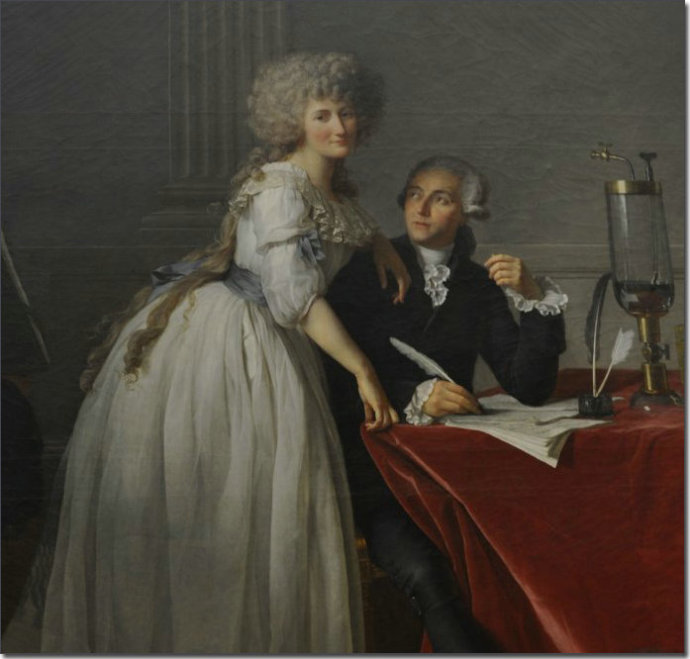(单词翻译:单击)
As a leading member of the Académie Royale des Sciences, he was also required to take an informed and active interest in whatever was topical—hypnotism, prison reform, the respiration of insects, the water supply of Paris. It was in such a capacity in 1780 that Lavoisier made some dismissive remarks about a new theory of combustion that had been submitted to the academy by a hopeful young scientist. The theory was indeed wrong, but the scientist never forgave him. His name was Jean-Paul Marat.
作为皇家科学院的一名主要成员,无论时下有什么值得关注的事,他还都得知道,积极参与——催眠术研究呀,监狱改革呀,昆虫的呼吸呀,巴黎的水供应呀,等等。1870年,一位很有前途的年轻科学家向科学院提交一篇论文,阐述一种新的燃烧理论;就是在那个岗位上,拉瓦锡说了几句轻蔑的话。这种理论的确是错的,但那位科学家再也没有原谅他。他的名字叫让——保罗·马拉。

The one thing Lavoisier never did was discover an element. At a time when it seemed as if almost anybody with a beaker, a flame, and some interesting powders could discover something new—and when, not incidentally, some two-thirds of the elements were yet to be found—Lavoisier failed to uncover a single one. It certainly wasn't for want of beakers. Lavoisier had thirteen thousand of them in what was, to an almost preposterous degree, the finest private laboratory in existence.
只有一件事拉瓦锡从来没有做过,那就是发现一种元素。在一个仿佛任何手拿烧杯、火焰和什么有意思的粉末的人都能发现新东西的时代——还要特别说一句,是一个大约有三分之二的元素还没有被发现的时代里——拉瓦锡没有发现一种元素。原因当然不是由于缺少烧杯。他有着天底下最好的私人实验室,好到了差不多荒谬的程度,里面竟有13000只烧杯。
Instead he took the discoveries of others and made sense of them. He threw out phlogiston and mephitic airs. He identified oxygen and hydrogen for what they were and gave them both their modern names. In short, he helped to bring rigor, clarity, and method to chemistry.
恰恰相反,他把别人的发现拿过来,说明这些发现的意义。他摈弃了燃素和有害气体。他确定了氧和氢到底是什么,并且给二者起了现今的名字。简而言之,他为化学的严格化、明晰化和条理化出了力。


